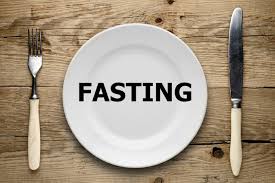 Should you take supplements while fasting? It is an age old question with no easy answer.
Should you take supplements while fasting? It is an age old question with no easy answer.
The fasting rituals connected with the holy month of Ramadan can pose a challenge for those who stick to a daily dietary routine. The usual fast stretches from dawn to sunset, during which time a person has to abstain from drinking and eating, among other activities. Meanwhile, more people than ever are diving into the waters of intermittent fasting—fueled by buzz from celebrity enthusiasts like Hugh Jackman as well as some pretty impressive research.
This brings us to a crucial question doing the rounds on Reddit and other online forums: Can I take dietary supplements while fasting? And if so, how?
The good thing about browsing the Internet is that tons of information is available at your fingertips. The flipside is there’s too much of it to sift through. Allow us to clear the air and give you some tips for taking supplements while fasting, whether during Ramadan or on an intermittent fasting routine.
Taking supplements during Ramadan
Here’s a simple guide to working around the two Ramadan meals and still getting all the nutrients your body needs. We broke this down into Ramadan’s two main meals.
- Suhoor: This refers to the pre-dawn meal you consume before a day of complete fasting begins. Make sure you stay hydrated and load up on a protein shake that includes BCAAs and creatine. This will balance your metabolism and ensure your evening workout doesn’t end in complete exhaustion. Don’t forget about your vitamin levels, either. Load up on fish oils, Vitamin C and Vitamin D.
- Iftar: The post-sunset meal that breaks a days fast will always help boost your nourishment, but make sure you stick to nutritious food items. A casein shake at night is a smart choice, as these slow-release proteins help your body recover while you rest. A whey protein shake along with a meal works too.
There is a misconception among people who work out that the month of Ramadan will lay waste to all the hard work they’ve put in at the gym. A well-tailored nutrition plan will keep your body in shape. While you may not be able to train at a very intense level, you can still stay fit.
As any dietician will tell you, the best time to work out during Ramadan is either right after Suhoor or in the evening, post-Iftar. If you can’t put up with the exertion of a gym workout under your current eating restrictions, make sure you get some form of exercise so that your muscles stay in shape. And remember to drink water between dusk and sunrise to aid your workout regimen. Try to consume at least 3 liters of H20 to keep your body properly hydrated.
Taking supplements during intermittent fasting
While Ramadan fasting is a religious obligation, intermittent fasting has gotten pretty popular in recent years among the masses. And this is one diet craze backed by actual research.
During intermittent fasting, you alternate between short cycles of eating and fasting. This approach focuses more on timing your meals and fasting periods to achieve physical goals. There is evidence that intermittent fasting can help with weight loss, though these studies haven’t shown long-term effects.
A simple IF pattern is skipping breakfast, eating brunch at noon and then a last meal at 8pm. This is known as the Lean Gains or 16/8 method as you end up fasting for 16 hours a day. The Warrior Method takes things to the next level with 20 hours of fasting and a 4-our window of nutritional intake. It’s designed to improve your metabolism rate and allow your body to streamline the absorption of glucose.
While your body might take time to acclimatize to this change, people have been known to feel more energetic during fasting periods. Water and non-caloric drinks and/or supplements are typically allowed, as well. That being said, there are a few other considerations to keep in mind while taking supplements on a fast:
- If you’re eating even one meal a day, you’re most probably getting all the nutrients you need. This obviously depends on your diet and if it includes essential proteins, carbs and fats. However, if your body lacks a few micronutrients, a supplement will help give you that extra push.
- If you’re fasting through the day, a branched-chain amino acid supplement is a good one to have by your side, as it helps enhance protein synthesis.
- Since intermittent fasting is typically used to aid with weight loss, it could be helpful to use a supplement high in EGCG to help break down stored fat and transform fatty acids into energy.
- Probiotics and prebiotics are said to be highly effective at breaking a short fast.
Whether you’re observing Ramadan or you’re looking to give intermittent fasting a shot, supplements are a crucial piece of the picture—especially if you’re working out during your fast. A fast doesn’t have to mean losing all your workout gains, but like any drastic change in your eating habits, it requires the right supplements and strategy to help your body adjust.
I’m not just a supplement analyst. I’m an extremely qualified one! I am a Certified Nutrition Coach (CNC) and actually received my certification directly from the National Academy of Sports Medicine. I am also a Nutrition & Wellness Consultant, certified by the American Fitness Professionals Association (AFPA).

